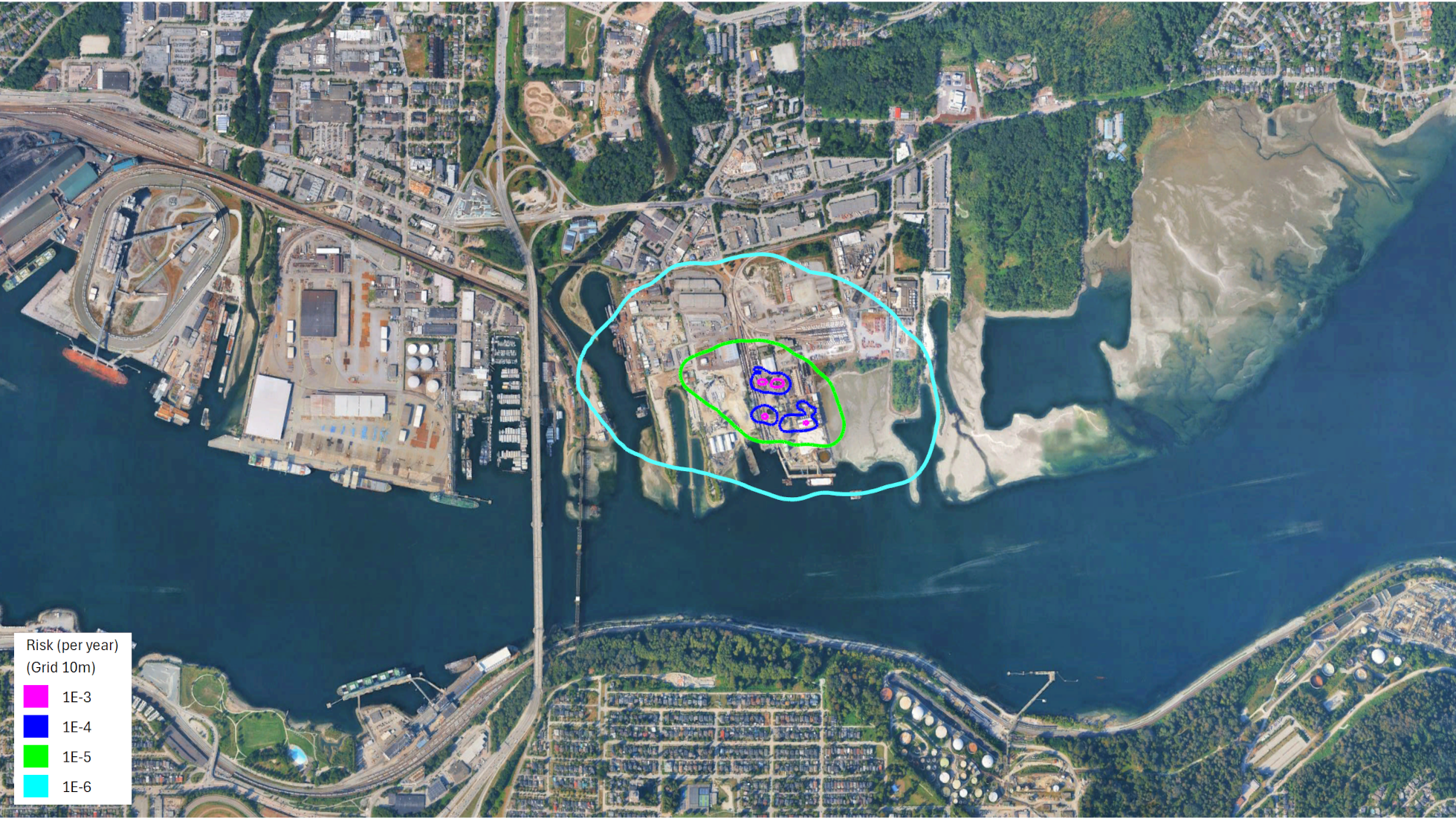
Safety
At Chemtrade, safety always comes first.
As with all chemicals, if they are not handled properly and responsibly, there is a risk. We are proud of our safety record, and our ongoing commitment to continuously improving the safety of our facility and our operations.
Safety above all else
At all our sites, including our North Vancouver facility, we have strict safety protocols in place that start with production and continue through to our products reaching our customers.
These safety protocols include comprehensive training for employees, rigorous safety protocols and procedures at all stages of production, facility safety drills and emergency response planning.
A sample of the safety measures in place at North Vancouver include:
At the facility level, we are fully automated, and the system is continuously monitored by state-of-the-art technology that will automatically notify operators of any abnormality in the operation. Anything outside of the normal operating range will trigger a system shut down and the area is isolated. This allows for continuous operation of the process and significantly reduces the chance of an incident occurring.
We work closely and collaboratively with local first responders in North Vancouver, including North Shore Emergency Management.
The site currently has 72 sensors, located throughout the facility, including along the perimeter and in the railcar loading area. These sensors can detect chlorine as low as 0.1 parts per million. When the sensors are triggered, automated shut down processes are initiated, isolating the area, and notifying site operators.
Chemtrade transports chlorine using specially designed railcars, which are custom designed for the transport of liquid chlorine. Once the chlorine is in the railcars the risk of an issue significantly lowers. We own and maintain our own fleet of railcars, which are continuously monitored and tested to ensure full functionality and safety.
In the event of a power outage, the facility is equipped with several safety mechanisms that are deployed and do not require operator support. Valves are immediately closed, securing the chlorine supply within the system.
Chemtrade follows all Canadian and US federal regulations and ensures that our employees receive rigorous training and consistently follow all industry and railroad-specific procedures for the safe handling, loading, and shipping of liquid chlorine. This includes following strict speed limits, thorough inspections, rail yard practices, and using identified shipping routes for materials deemed hazardous.
Investments since 2007 and into the future
Since 2007, over $500 million has been invested in modernization projects to improve both safety and reliability at the North Vancouver facility.
There has also been a notable change in how the facility is operated. Using liquid chlorine storage levels from 2000 as the benchmark, the amount of liquid chlorine stored on site has been reduced by over 94 per cent.
Future Investment
Chemtrade recently commissioned updated risk information for the North Vancouver facility using the latest technology and accepted parameters. BakerRisk, an independent third-party company, took into consideration site modernization projects completed since 2010, as well as operational changes, that reduce the volume of liquid chlorine stored on site.
While this risk mapping work is still underway, Chemtrade is considering other strategic improvement projects that would keep risks confined within its property boundaries. This includes the elimination of the bulk storage of liquid chlorine and moving all loading activities to a sealed building that would use scrubbers to remove any chlorine from the air, should a leak occur during the rail loading process.
Our intention is to move forward with the strategic improvements as suggested by the BakerRisk risk reduction modeling to significantly reduce any potential risk to the community from continued liquid chlorine production. This investment will require initial engineering studies and a full estimation process as well as regulatory permits and an extension of Chemtrade’s lease for adjacent Port lands, used for both operations and to import salt for production. As an organization who prioritizes safety above all else, we are willing to begin this work, and do not expect the cost to be an impediment to our desire to move forward.
These risk reduction projects will require time to complete, as they would need to be completed during facility maintenance shutdowns, which are scheduled every two years. Once this risk reduction work is complete, the details will be shared with the community.
Current risk curves as developed in 2006
Risk curve modelling following execution of additional risk mitigation projects.
Rail is a safe and established way of shipping
At Chemtrade, we uphold the strictest safety standards in material transportation by adhering to rigorous federal and industry requirements. Our robust rail safety program features a specialized fleet of railcars, each engineered to comply with the most current regulatory and industry specifications. Supported by a highly trained and experienced workforce, robust engineering and inspection programs, and regular maintenance schedules, each shipment reaches its destination through routes specifically designed for hazardous materials.
Chemtrade’s next-generation chlorine cars are equipped with significant design improvements for both safety and regulatory requirements. This includes pressure-tested cars approved to transport products up to 600 PSI, increased tank shell and tank head thickness, and enhanced protective housing that provides rollover protection.
Operating through the Port of Vancouver – the only North American port linked to three Class 1 railways (Canadian National, Canadian Pacific Kansas City, and Burlington Northern Santa Fe Railway Company) – Chemtrade in North Vancouver leverages an established rail network that adheres to Transport Canada's extensive requirements. Rail is the safest way to move goods over land, with more than 99.9% of all dangerous goods moved by rail in Canada reaching their intended destinations without incident.
Chemtrade maintains and operates a fleet of leased railcars, all designed for transporting our products, with the latest regulatory specifications and industry standards.







